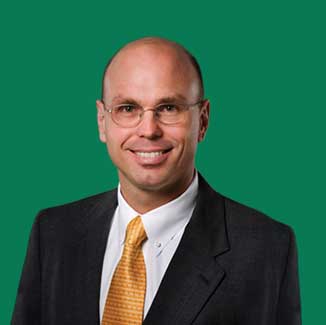
Imagine you were driving home from work on Park Boulevard when another driver rear-ended your car and immediately fled the scene. Now you're left with nagging injuries, mounting medical bills, and no way to identify the at-fault driver. You've heard that hit-and-run victims often struggle to recover compensation, and you're worried about how you'll pay for your medical care and vehicle repairs.
Table of Contents
At DeLoach, Hofstra & Cavonis, our Seminole car accident lawyers understand the fear and frustration you're experiencing. We've helped many hit-and-run victims secure the compensation they need, even when the at-fault driver was never found. Let us show you the legal options available for your recovery.
Crucial First Steps After a Hit-and-Run Car Crash
The moments immediately following a hit-and-run accident are critical for both your health and potential financial recovery. Many of the same steps you take after a car accident apply to hit-and-runs, too.
- Call 911 right away, even if your injuries seem minor. The responding officer will create an official police report, which is essential for insurance claims and any future legal action.
- While waiting for police to arrive, gather as much information as possible about the fleeing vehicle. Try to remember the make, model, color, and any part of the license plate number. Note distinguishing features like bumper stickers, damage, or aftermarket modifications. Even partial details can help law enforcement track down the driver.
- Take photos of your vehicle damage, the accident scene, and any visible injuries. They can serve as valuable evidence for your claim.
- Look for nearby security cameras from businesses or traffic signals that might have captured the crash.
- If any witnesses stopped to help, get their contact information and ask them to provide statements to the police.
- Get in touch with an experienced Florida car accident attorney who can guide you through the next steps.
Understanding Your Insurance Coverage Options in Florida
Florida's insurance system provides several potential sources of compensation after a hit-and-run accident.
PIP and Collision Insurance
As part of your auto insurance policy, your Personal Injury Protection (PIP) coverage offers immediate help with medical bills and lost wages, regardless of who caused the accident.
Your collision coverage can pay for vehicle repairs, though you must pay your deductible first. If the at-fault driver is later identified, you may be able to recover your deductible through their insurance company.
Uninsured Motorist Coverage
Uninsured motorist coverage (UMC) is particularly valuable after hit-and-run crashes. This optional car insurance coverage applies when the at-fault driver is unknown or lacks adequate insurance. It can pay for:
- Medical treatment beyond your PIP limits
- Lost wages and reduced earning capacity
- Long-term rehabilitation needs
- Pain and suffering damages
- Vehicle repairs
- Rental car expenses
- Future medical care
The Impact of Comparative Negligence
Even if you were partially at fault for the initial collision, you may still be entitled to compensation. Florida follows a modified comparative negligence system, meaning you can recover damages if you are 50% or less at fault for the accident. However, your compensation will be reduced by your share of responsibility.
For example, if you sustain $100,000 in damages and are 30% responsible for causing the crash, you may still be eligible to receive up to $70,000 in settlement or as a court verdict.
How Florida No-Fault Insurance Laws Apply
Florida's no-fault insurance system requires all drivers to carry Personal Injury Protection (PIP) coverage. After a hit-and-run crash, your PIP coverage pays:
- 80% of necessary medical expenses
- 60% of lost wages up to a $10,000 limit
- Essential services if you need help with household tasks
- Reasonable travel expenses for medical appointments
However, PIP coverage has significant limitations, including a policy maximum limit. Coverage only applies to medical treatment received within 14 days of the crash. Many hit-and-run victims find their medical bills quickly exceed PIP limits.
Building a Strong Hit-and-Run Accident Injury Case
Our Florida car accident lawyers conduct thorough investigations to maximize your chances of recovery. As part of this extensive process, we will:
- Review surveillance footage from nearby businesses
- Work with accident reconstruction experts
- Interview all available witnesses
- Obtain and analyze police reports
- Document your injuries through medical records
- Calculate your current and future damages
- Identify all possible insurance coverage
- Handle all communication with insurance companies
- File necessary legal documents
- Protect your legal rights
If law enforcement identifies the hit-and-run driver, we can pursue a claim against their insurance company and potentially seek punitive damages. Florida law permits punitive damages in cases involving particularly egregious conduct, like fleeing the scene of an accident.
Criminal Consequences for Hit-and-Run Drivers
Florida law takes hit-and-run crashes seriously. Under Chapter 316 of the Florida Statutes, leaving the scene of a car accident is a serious criminal offense with severe penalties:
- If the crash caused only property damage, leaving the scene is a second-degree misdemeanor punishable by up to 60 days in jail and $500 in fines.
- When someone suffers injuries, fleeing the scene becomes a third-degree felony. The driver faces up to five years in prison or probation, plus a $5,000 fine.
- If the accident resulted in death, leaving the accident scene is a first-degree felony, punishable by a prison sentence of up to 30 years and up to $10,000 in fines.
Additionally, their driver's license may be revoked, and they may face civil lawsuits from victims or their families. If alcohol was involved, the penalties become even more severe.
These criminal penalties are separate from any civil claims you may have for compensation. If police locate the hit-and-run driver, our Seminole car accident lawyers can use evidence from the criminal case to strengthen your civil claim for damages.

